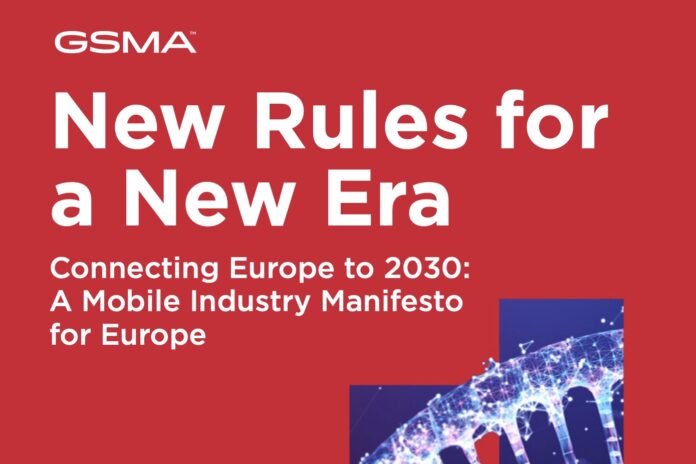GSMA publishes manifesto that largely restates their positions and arguments ahead of a new European Commission being appointed this year
Europe’s telcos and the industry associations they sponsor are not letting up in their campaigns for regulatory reform. The GSMA has published Connecting Europe to 2030: A Mobile Industry Manifesto for Europe on behalf of the continent’s biggest operator groups.
It wants “critical policy reforms to ensure that Europe’s digital economy, underpinned by strong, sustained network innovation, can re-establish a leadership position in the global tech race by 2030”.
It also requests regulators’ help in progressing the European Union’s digital agenda.
The list of systemic issues the operators want regulators to address is familiar: fragmented markets, regulatory hurdles and barriers to investment. The document claims they have inhibited the growth of telecoms in Europe and its competitiveness.
This reiterates the new deal demanded by the leaders of Europe’s four biggest operator groups – Deutsche Telekom, Orange, Telefonica and Vodafone – at MWC at the end of last month.
They also pressed for those who generate large volumes of traffic – Big Techco – to pay towards the cost of building ever more capacity. This fair-share argument looked to be gathering momentum after MWC 2023, but ran out of steam later last year due to a lack of political will.
The term fair-share seems to have fallen out of use consequently, but not the operators’ desire for those that generate high volumes of traffic to “resume responsibility and contribute to infrastructure costs, thereby also incentivising optimised network usage that ensures better energy savings and prevents consumers from being exposed to unnecessary and unwanted data.”
Better approaches to licensing spectrum, European Commissioner for Internal Markets, Thierry Breton, is also likely to run into brick walls. Many countries’ exchequers see spectrum auctions as ways to top up their coffers. The German treasury alone has benefited to the tune of €19 billion from spectrum auctions between 2000 and 2019.
Arguments that hormonised approaches are all very well but hard cash is easier to grasp than the goals of Europe’s assigned Digital Decade.
Group CEO and chair of Telefonica, José María Álvarez-Pallete, also used his speech in Brussels to celebrate the operator’s centenary as a soapbox to push for a new regulator landscape in Europe.
He said the continent needs “a robust and sustainable telecommunications sector” which requires “European institutions to enable it. We need a proper definition of the relevant markets and in-market scale. We need a new approach to regulation.”
The current Commission’s time in office ends this year. it remains to be seen if it will be more sympathetic to the operators’ arguments and those of their trade associations. Radical thinking is unlikely. Often the same faces just trade places, with candidates nominated by the 27 member states’ national governments and approved by the European Parliament.



